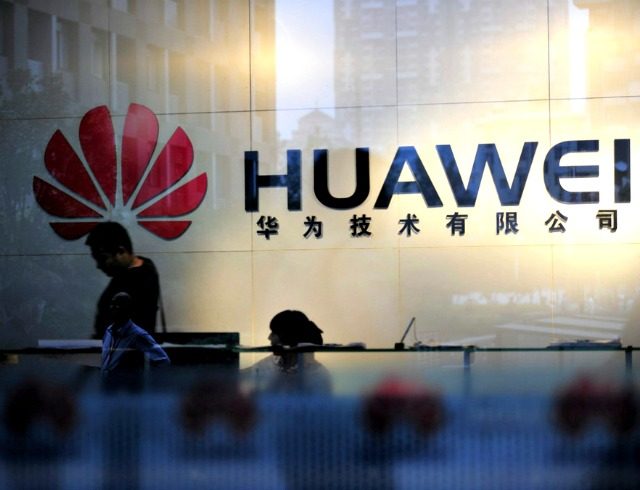The Trump administration’s fight for a tech future free from Chinese dominance now includes the Federal Communications Commission.
In a Monday announcement, FCC chairman Ajit Pai joined the Commerce Department’s Wilbur Ross, Treasury’s Steven Mnuchin, and U.S. Trade Representative Robert Lighthizer in announcing new measures aimed at curbing China’s economic aggression.
Pai prefaced the announcement of consequences for certain Chinese telecommunications companies with a statement of the little-known second purpose of the FCC.
“What might surprise people is that our second stated purpose is ‘the national defense,’” said Pai. This is included in the first section of the commission’s 1934 founding statute.
Pai announced that the FCC will vote in April “on a targeted proposal to prohibit the use of [Universal Service Fund] dollars to purchase equipment or services from any company that poses a national security threat to the integrity of U.S. communications networks or the communications supply chain.”
“The changing communications landscape has not only elevated the importance of network security, but also created new challenges,” Pai said before pinpointing the integrity of the supply chain as an example. “Over the past decade, the Executive Branch and Congress have repeatedly stressed the importance of identifying and eliminating vulnerabilities in communications networks and their supply chains.”
Pai then singled out the national security concern posed by “certain communications equipment providers” and in particular “certain Chinese communications equipment providers.”
The Chairman admitted that the FCC could not tackle the problem on its own, but does play a role. One example he gave was “we have a responsibility to make sure that the money from our Universal Service Fund (USF) programs is not used in a way that undermines our national security.”
The USF is an FCC fund and set of policies and programs to implement the principle that “All Americans should have access to communications services.” The principle of universal service was included in the FCC’s founding statute. The fund distributed over $8 billion in 2015.
Eighteen Senators and Representatives signed on to a December 2017 letter addressed to the Commissioner to heighten his attention to Chinese espionage and a particular Chinese telecommunications equipment manufacturer named Huawei. The Letter noted “press reports that a major U.S. telecommunications provider will begin selling Huawei consumer products in the United States as early as next year, with little or no modifications to the products.”
House and Senate select committees on intelligence released a report in 2013 “detailing Huawei’s ties to the Chinese Communist Party, as well as to Chinese intelligence and security services,” according to the letter. The congressional letter requested that Team Telecom review the relationship between the two entities.
Pai responded with his own letter noting changes to the plan specifically addressed in the congressional letter, but nevertheless acknowledging a shared concern over “the security threat that Huawei and other Chinese technology companies pose to our communications networks.” He cited a November 2010 congressional letter to the then FCC Chairman Julius Genachowski that also addressed the issue and specifically Huawei and ZTE. Pai ensured that the “FCC does not purchase or use Huawei or ZTE products or equipment.”
The Intelligence Community briefed Pai on these issues in response to the letter. As a result, Pai intends “to take proactive steps to help insure the integrity of the communications supply chain in the United States in the near future.”
President Donald Trump has specifically targeted China for economic aggression. On March 21 Trump announced tariffs on an estimated $50 billion in exports from China. Trump also ordered the Treasury Department to put together restrictions to be imposed on Chinese investments in American companies. This was one of several actions announced aimed at mitigating China’s “unfair trade practices.”
Follow Michelle Moons on Twitter @MichelleDiana

COMMENTS
Please let us know if you're having issues with commenting.